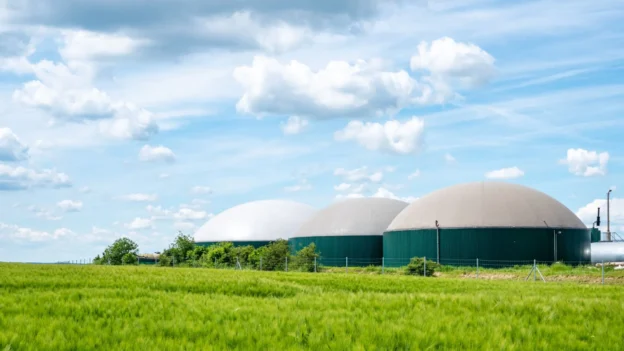Suzuki Motor Corporation announced that the “Biogas Project” has been officially adopted by the industrial cooperation program of the United Nations Industrial Development Organization (UNIDO), focused on promoting technology transfer to countries in the Global South. The initiative marks a key step forward in the Japanese automaker’s sustainability strategy.
The development of the biogas project
The proposal, entitled “Collaboration between the Indian Dairy Sector and the Japanese Automotive Sector to Address Social Issues in India,” will be developed with financial support from Japan’s Ministry of Economy, Trade and Industry (METI). Through this effort, Suzuki will build a biogas plant capable of transforming cattle manure into vehicle fuel for automobiles powered by compressed natural gas (CNG).
In collaboration with the National Dairy Development Board of India and local associations, Suzuki will begin operations in 2025. The plant will be located in a rural area, taking advantage of the potential of livestock waste as a renewable energy source. This scheme not only serves energy needs, but also stimulates the economic development of rural communities.
According to industry figures, around 20 % of passenger vehicles in India use CNG. The biogas produced by the plant will contribute directly to this market, offering a carbon-neutral alternative. The initiative also contemplates social benefits such as job creation, improvements in rural incomes and greater energy self-sufficiency.
This project is part of a larger plan to replicate the biogas plant model in other regions of India. Japanese technology specialized in the treatment and conversion of organic waste will be used for this purpose. Collaboration between sectors and countries is in line with the sustainability and industrial development objectives promoted by UNIDO at a global level.
The program also strengthens South-South cooperation ties by enabling Japanese companies like Suzuki to lead initiatives that combine innovation, positive environmental impact and tangible social benefits in emerging nations.
Following the commissioning of the first plant, Suzuki plans to extend this technology through new regional developments. The model not only provides clean fuel, but also establishes a circular economy cycle with direct impact on milk-producing communities. The experience could be scaled up in other countries in the Global South with similar conditions.
Follow us on social networks and don’t miss any of our publications!
YouTube LinkedIn Facebook Instagram X (Twitter) TikTok
Source and photo: Suzuki

